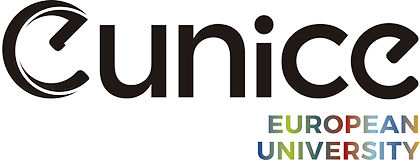MSc in Food Quality and Technology
Presentation
The Master’s Degree in Food Quality and Technology (approved by order of the Minister of Science, Technology and Higher Education of 23 October 2008), of the Escola Superior Agrária de Viseu, was planned taking into account the specifications provided for in Decree-Law 74/2006, of 24 March.
This Master’s Degree enables a highly demanding training in the area of Quality and Food Technology, allowing to integrate, complement and develop required skills at the most advanced level (2nd degree in the course of the year).
The curricular structure of the Master’s Degree in Food Quality and Technology, whose study plan was published in the Official Gazette on 13 February 2009 (2nd Series – nº31), amended by Order no. 10550/2015 – Diário da República no. 185/2015, Series of 2015-09-22, consists in the first year of a teaching component composed of several curricular units belonging to various scientific areas, followed in the second year by a component that will correspond to the preparation of the dissertation.
Objectives and Skills
The general objectives of this Master’s course in Food Quality and Technology are the acquisition and deepening of technical and scientific knowledge in the area of Food Quality and Technology.
The specific objectives of the cycle of studies leading to the Master’s degree in Food Quality and Technology are:
-
- Deepening of knowledge of operations and processes in the food industry, in order to control the reactions in food during processing and storage;
- Understand and have the ability to execute and implement modern analytical techniques associated with food, as well as demonstrate expertise in the application of modern laboratory techniques of analysis;
- Ability to select the appropriate analytical technique for a specific problem associated with the area of Food Engineering and Quality and the design of new foods and processes;
- Describe the physical properties of foods and experimentally determine their values using various instrumental methods, as well as using sensory analysis, with a view to optimizing and formulating food products;
- Understand the role of microorganisms and enzymes in the preparation, use and transformation of food products in an innovative vision;
Understand the principles associated with the design, planning and management of food processes using new solutions;
Describe the chemical, biochemical, physical and enzymatic factors underlying the synthesis and metabolism of foodstuffs; - Understand the source and variability of raw materials, as well as the new ways of obtaining them, in terms of their use in food preparation and also understand their impact on food processing/design operations;
Develop the ability to establish and understand transport processes and unit operations in food processing both conceptually and experimentally; - Understand the current principles and practices of processing techniques and the effects of processing parameters on the quality of food products and relate them to development and innovation in the food industry;
Design, apply and statistically interpret sensory analysis methods to assess the quality or preference of food with a view to consumer satisfaction as well as in the creation of new food products; - Understand the ethical aspects associated with the use of new raw materials and new processes involved in the production and marketing of novel foods;
Contribute to quality certification and food safety programs.
Study Plan
Course:
Food Quality & Technology
Training field:
Manufacturing
Degree or Diploma:
Postgraduate/Master’s Degree
Duration:
2 academic years / 4 semesters
Departament:
Departamento de Indústrias Alimentares (DIA)
Director:
Maria João Reis Lima
Regime:
Diurnal
Number of ECTS to obtain the degree:
120 ECTS
Main Scientific Field
Food Science and Technology
Admission Requirements :
Local Application
Course Code/Ner:
3185 / M068
Prerequisites:
No prerequisites.


